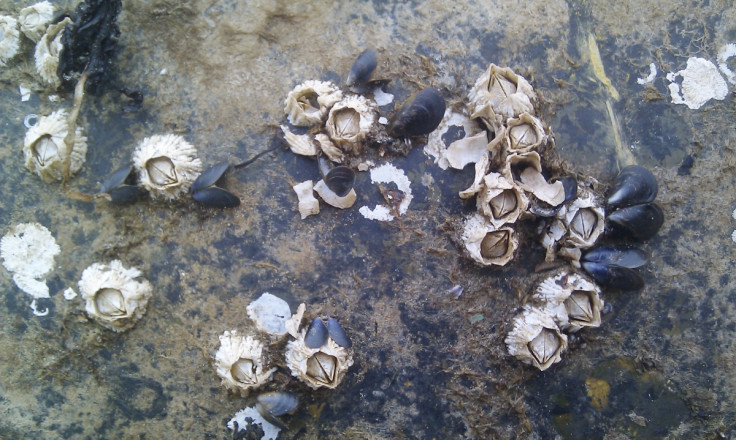Hydrogel superglue tougher than barnacle adhesive created by MIT scientists

MIT scientists have created a synthetic sticky hydrogel superglue tougher than the natural adhesive that mussels and barnacles use to stick to cliffs, ships and whales. The hydrogel created is more than 90% water and can stick to surfaces like glass, silicon, aluminium and titanium with a toughness similar to the bond between tendons and cartilage to bone – a level never achieved before.
The scientists, publishing their research in the journal Nature Materials, were able to apply a small square of their hydrogel between two plates of glass from which they then suspended a 55lb weight. They also glued it to a silicon wafer and when they smashed it with a hammer, the silicon shattered by the pieces remained stuck in place.
Researchers say the hydrogel has wide-ranging possible uses, including health-related applications, like biomedical coatings or sensor implants, along with providing protective coatings for underwater surfaces like boats and submarines.
They wrote: "We...demonstrate applications of robust hydrogel – solid hybrids, including hydrogel superglues, mechanically protective hydrogel coatings, hydrogel joints for robotic structures and robust hydrogel-metal conductors." Corresponding author Xuanhe Zhao added: "You can imagine new applications with this very robust, adhesive, yet soft material."
The scientists created the hydrogel by looking to nature, examining how tendons and cartilage attach to bone. Hyunwoo Yuk, lead author of the study, mixed a solution of water with a dissipative ingredient to produce a stretchy, rubbery material. He then placed it on top of various surfaces and tested its bond using a peeling test, during which they measured the force required to peel the hydrogel off.
On average it was as tough as 1,000 joules per square meter – far higher than existing hydrogels. "We basically broke a world record in bonding toughness of hydrogels, and it was inspired by nature," Yuk said.
Zhao and the researchers are now looking to explore how their hydrogel can be used in soft robotics and bioelectronics. He explained: "Since the hydrogel contains over 90% water, the bonding may be regarded as a water adhesive, which is tougher than natural glues, such as in barnacles and mussels, and bio-inspired underwater glues. The work has significant implications in understanding bio-adhesion, as well as practical applications, such as in hydrogel coatings, biomedical devices, tissue engineering, water treatment and underwater glues."
© Copyright IBTimes 2025. All rights reserved.






















